Treatment For Anxiety
What is it? Psychologists have given fancy names to the different types of anxiety, but they are all different versions of the same thing…fear of possible bad or threatening experiences happening in the future. Here are some of the more common ones:
Psychologists have given fancy names to the different types of anxiety, but they are all different versions of the same thing…fear of possible bad or threatening experiences happening in the future. Here are some of the more common ones:
Social Anxiety – fear of failure/mistakes, performing in front of others, authority figures, and of being judged or criticized.
Panic Disorder – fear of bodily sensations and panic attacks.
Separation Anxiety – fear of being separated from caregivers or loved ones.
Specific Phobia – fear of heights, elevators, spiders, etc.
Obsessive Compulsive Disorder – fear of intrusive thoughts about germs, harm, morality, etc. and/or need to feel “just right.”
Post Traumatic Stress Disorder – fear of traumatic memories from the past.
Generalized Anxiety Disorder (excessive, recurrent worrying) – fear of potential problems in the future.
How is Anxiety treated?
 The past twenty years has seen a revolution in the field of treating anxiety. These methods are backed by literally thousands of research studies.
The past twenty years has seen a revolution in the field of treating anxiety. These methods are backed by literally thousands of research studies.
Straight Up Treatment employs the most cutting-edge anxiety treatments and brings the latest knowledge and research to our practice. Here are some of the modalities we work in, and how they can produce results for you.
CBT – Cognitive Behavioral Therapy – Modify your thinking and change your behavior and you can feel better. Learn more here.
ACT – Acceptance and Commitment Therapy – Stop avoiding, and instead take action toward a meaningful life. Learn more here.
DBT – Dialectical Behavior Therapy – Learn to manage big and difficult emotions when they arise.
ERP – Exposure and Response Prevention – Face your fears gradually and you can overcome them. Learn more here.
EFT – Emotionally focused therapy – Learn how to connect and better communicate with the people you care about.
Psychodynamic – Gain insight into who you are and heal from your past.
Our unique integrative approach uses all these modalities – providing symptom relief in the short-term, building insight, coping tools, and emotional connection in the long-term.
When should I seek support?
 Anxiety becomes problematic when it effects your life in a negative way, whether it be at work, at home, at school, or in your relationships.
Anxiety becomes problematic when it effects your life in a negative way, whether it be at work, at home, at school, or in your relationships.
If anxiety is holding you back in some way and interfering with you achieving your goals, then you may want to get some help in how to manage it.
That’s where we come in – click here now!

